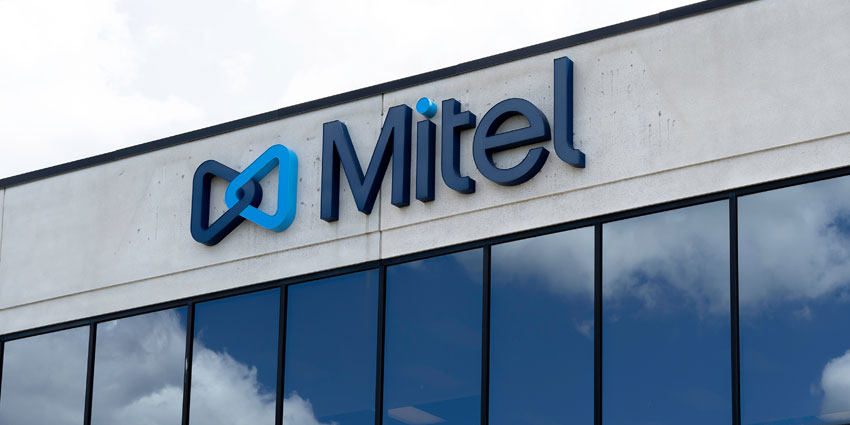Mitel has officially filed for Chapter 11 bankruptcy, expecting a “swift” exit.
Chapter 11 bankruptcy enables organizations to stay running as they reorganize their debt loads and repay creditors.
Don’t confuse this with chapter seven bankruptcy: liquidation.
According to sources, Mitel has a debt of $235MN that will mature in December 2025.
The company’s bankruptcy plan, which – if approved by the courts – will enable it to pay that money back in two key ways.
First, by rapidly selling off some of its assets to capture approximately $135MN in funds.
Second, by securing financing worth $124.5MN. That will come from two sources: a $60MN commitment from debtor-in-possession (“DIP”) financing and another $64.5MN from new exit financing, should the court approve Mitel’s plan.
The former financing source will support continued operations during the Chapter 11 process, with Mitel promising “minimal disruption to customers, employees, vendors, or partners.”
Mitel says its bankruptcy plan has support from “a majority” of its lenders.
That plan concerns only the US, Canada, and select UK business segments. It will not impact the broader global business, which will operate on its “normal course”.
However, the filing does mark a significant milestone in Mitel’s strategy pivot, with the restructure of Mitel’s capital aiming to prioritize the “hybrid communications market opportunity”.
A hybrid communications model allows businesses to keep critical infrastructure on-premise and layering SaaS innovation over the top.
Mitel increasingly offers such services through first-hand innovation and new partnerships, including those recently announced with Genesys and Zoom.
Currently, Mitel operates in over 100 countries, with 70MN users leveraging those services.
A Word from the Mitel’s CEO
In announcing the bankruptcy filing, Tarun Loomba, CEO of Mitel, noted in a press release: “We are confident the steps we are taking to optimize our capital structure will make us a stronger company primed for efficient and sustainable growth.
Our strengthened capabilities at the end of this process will ensure our ability to continue to support customers and partners with innovative solutions, incorporating emerging technologies, and meeting their evolving needs for secure, reliable communications solutions for years to come.
“We look forward to becoming an even stronger vendor to our customers through this process, better positioned to power their most meaningful connections and to address the increasing preferences for hybrid communications solutions, globally,” concluded Loomba.
How Did Mitel Get Here?
In sharing speculation of Mitel’s bankruptcy last week, CX Today isolated two notable drivers for Mitel’s plunge into bankruptcy.
First, its 2018 move to become a private company came with a significant debt burden, which the company has struggled to shake off.
Second, its historical acquisition strategy increased the scope of its business but left Mitel without a key differentiator. There was no “there” there.
Indeed, as Zeus Kerravala, Principal Analyst at ZK Research, noted:
They tried to be all things to all people, which backfired.
Kerravala also cited the ShoreTech acquisition as a misstep. “Mitel thought they were getting a solid UCaaS solution but the product had significant stability issues,” he said. “It was a first-generation solution that didn’t perform well.”
However, perhaps there’s also another factor here: how crowded the enterprise communications space has become.
Hyperscalers – like AWS, Google, and Microsoft – are making their presence felt. Meanwhile, other heavy hitters – including RingCentral, Sprinklr, and Zoom – have increased their market presence.
With these tech juggernauts circling its historical base, Mitel needs a differentiator.
Now, with new partnerships and a reorganization of its portfolio, Mitel hopes to have found a long-term business driver in its hybrid communications strategy.
As Loomba suggested, more brands are considering a hybrid model for several reasons. For instance, the US government reserves the right to seize data stored in various public clouds, including AWS, Google, and Microsoft. For many global enterprises, that’s a growing concern.
Other reasons include broader regulations, tricky-to-migrate workloads, and difficult-to-replicate on-premise configurations, pushing large organizations into hybrid modes.
What Does This Mean for the Enterprise Communications Market?
Mitel is a contact center and unified communications stalwart, serving the space for over 50 years.
It’s the latest legacy name to endure a Chapter 11 bankruptcy in recent years, after Afiniti and Avaya.
Like Avaya, Mitel has a large base of on-premise customers they must still support, with lots of technical and acquisition-based debt.
That puts Mitel at a disadvantage to market entrants, unencumbered by resources directed to servicing legacy customers.
Finbarr Begley, Senior Research Analyst at Cavell Group, highlighted this in a LinkedIn post.
“It’s worth acknowledging that legacy can be a potential strength since it represents a tranche of loyal and long-term customers who can transition to a new solution,” he said.
However, it’s telling that companies with that legacy debt, like Avaya and now Mitel, have had to take a strategy to move on from some of it.
In making this point, Begley points to Avaya’s recent restructure, which has resulted in global layoffs.
Meanwhile, Genesys has also stopped its on-premise contact center innovation.
“The challenge is that there are a large number of new competitors unburdened by that legacy who are more than happy to compete on price and spend more on R&D,” he continued.
“We are already seeing some service providers acknowledge that their homegrown solutions can no longer compete with the agility and development of newer competitors. Who are, like Mitel, now partnering with those competitors instead.”
Of course, this isn’t to say Mitel’s story is nearing an end. Its hybrid strategy has merit.
Nevertheless, the bankruptcy filing underlines its struggles and – according to Begley – the market trajectory to consolidation.







